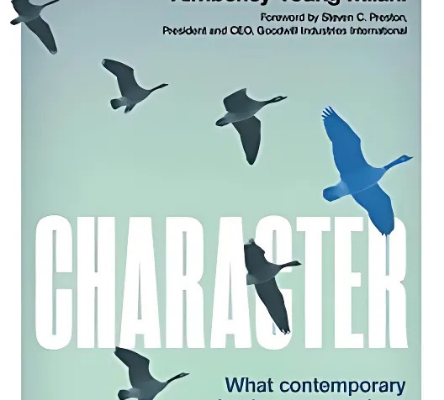Think of a successful business you know. Now think of the owner/entrepreneur who built it. Endless hours or work, rolling up their sleeves, through grit and determination they have succeeded. They took on debt and put their family finances through stress, often more than once. They convinced the rest of the family to help and to participate in whatever jobs were required in order to ensure the business would thrive. And now that the business has grown, cash flow is consistent, and loans are no longer personally guaranteed, these entrepreneurial gladiators can breathe a sigh of relief.
At this point the business and the family are intertwined. Just like a human being, that business is a living, breathing entity that has defined not only the owner, but their family as well. It is that entrepreneur’s “Legacy”.
In the early growth phase of the business cycle while the children were still young, the owner had the wherewithal to see a lawyer to draft his/her will. The lawyer asked how their assets should be split when they pass away. The answer: “We need to be fair to all children. Our assets, should be split equally among them.” At the time the will was written, although the entrepreneur envisioned it growing over time, the business was not worth a lot and the children were not expected to inherit much.
Today, the successful business is worth a significant amount.
The daughter has shown interest and enthusiasm, along with ingenuity and strategic thinking. She is actively involved in the business and will be taking over. The two sons have also been intermittently involved in the business over the years, but have established careers in different fields.
If nothing further were done, this business legacy could be destroyed.
Imagine if the entrepreneur and their spouse die unexpectedly. The business would be shared equally between the three children as outlined in the will. After all, that would only be fair right? All three children should get an equal share. But does equal mean fair?
In an “equal” split, the daughter would no longer have control over the business, as the voting shares would be divided equally among the three children. The sons would have a greater vote (two-thirds) than the daughter. The family legacy that was envisioned could then fall apart. The sons who have not been active participants in the company still feel they are entitled to the same portion of the company’s benefits as the daughter, who has now taken on the roll of owner and leader. If the sons, who have not been involved in the company, wanted to draw cash from the corporation that had been saved for a necessary equipment purpose, they would be able to do so. If they wanted to draw the rainy-day cash which the daughter has so carefully put aside, they would be able to do that too. If the sons felt it would be best to sell the business and take the proceeds of the sale, they could force the sale.
In other words, wanting to be fair, the entrepreneur may instead cause great pain – not just to the family, but also to the sustainability of the business and its legacy.
What could that entrepreneur have done instead? There is an old expression that has often been used in estate planning: equitable is not the same as equal. In this example, the estate was left equally to each child. Instead, the entrepreneur could have updated their will and estate plan and ensured that all the shares of the business were left to their daughter so that she could maintain in control. And the business legacy could remain intact.
If they did that, they would want to find a way for the sons to receive an equitable proportion of the estate. They could leave personal assets like real estate or investments to the sons. If the business far outweighed the personal assets in value, the entrepreneur could also have considered life insurance, leaving the sons as beneficiaries. Is the proper setup in place to take advantage of all the tax benefits? The owner might want to consider an estate freeze to crystalize the gains now and attribute any forward growth to the daughter.
There is a lot of planning that can be done for businesses and for business owners. The key is to not just set up a plan, but to ensure there is regular ongoing planning as the business and family dynamics continue to evolve.
When was the last time your plan was reviewed? At Tall Oak Private Wealth, we look forward to working with you and your business as we help you in planning for continued success.
To learn more about how we can help, please click here.
This newsletter has been prepared by (FA name) Statistics and factual data and other information in this newsletter are from sources Raymond James (RJL) believes to be reliable but their accuracy cannot be guaranteed. This newsletter is furnished on the basis and understanding that RJL is to be under no liability whatsoever in respect thereof. It is for information purposes only and is not to be construed as an offer or solicitation for the sale or purchase of securities. RJL and its officers, directors, employees and their families may from time to time invest in the securities discussed in this newsletter. This newsletter is intended for distribution only in those jurisdictions where RJL is registered as a dealer in securities. Any distribution or dissemination of this report in any other jurisdiction is strictly prohibited. This report is not intended for nor should it be distributed to any person residing in the USA. RJL is a member of the Canadian Investor Protection Fund.
The views expressed in this commentary are those of Tall Oak Capital Advisors as at the date of publication and are subject to change without notice. This commentary is presented only as a general source of information and is not intended as a solicitation to buy or sell specific investments, nor is it intended to provide tax or legal advice. Statistics, factual data and other information are from sources Tall Oak believes to be reliable but their accuracy cannot be guaranteed. This commentary is intended for distribution only in those jurisdictions where Tall Oak Capital Advisors are registered. Securities-related products and services are offered through Raymond James Correspondent Services Ltd., member Canadian Investor Protection Fund. Insurance products and services are offered through Gryphin Advantage Inc., which is not a member-Canadian Investor Protection Fund. This commentary may provide links to other Internet sites for the convenience of users. Tall Oak Capital Advisors is not responsible for the availability or content of these external sites, nor does Tall Oak Capital Advisors endorse, warrant or guarantee the products, services or information described or offered at these other Internet sites. Users cannot assume that the external sites will abide by the same Privacy Policy which Tall Oak Capital Advisors adheres to.




